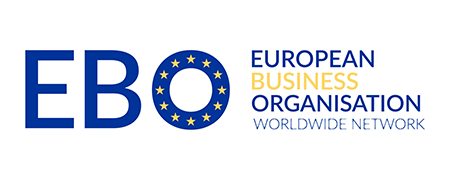The EBOWN Webinar on Informed Trade Decisions under CS3D, held on 20 August 2024, was designed to introduce members of the European Business Organisations Worldwide Network (EBOWN) and European companies to a new capacity-building pilot aimed at enhancing informed trade decisions under the Corporate Sustainability Due Diligence (CS3D) Directive. This initiative seeks to empower Business Support Organisations (BSOs) and SMEs with the necessary tools and knowledge to navigate the evolving landscape of sustainability standards, improve access to reliable sustainability data, and develop robust due diligence practices. Additionally, the webinar aimed to inform European companies about the ongoing efforts to support their suppliers in meeting CS3D requirements, ensuring that their supply chains remain compliant with European sustainability standards. By fostering collaboration and proactive engagement, the webinar served as a critical platform for promoting sustainable and responsible trade practices within European and global markets.
The session was led and moderated by Cathy Murphy, EBOWN Head of Development and Vice-President of EBO Canada, featuring insightful presentations by Joseph Wozniak and Petra Walterova from the International Trade Centre (ITC).
Joseph Wozniak provided a comprehensive overview of ITC’s efforts in advancing sustainability through its Trade for Sustainable Development (T4SD) program and the European Union’s CS3D Directive. He emphasized ITC’s long-standing commitment to sustainability, showcasing the T4SD program’s success in developing global tools like the Standards Map, which allows users to compare various sustainability standards. Joseph highlighted the transformative nature of the CS3D, which elevates sustainability from a voluntary initiative to a mandatory legal requirement for large companies, while also indirectly impacting SMEs. He outlined ITC’s dedication to assisting SMEs in meeting CS3D obligations through updated tools, capacity-building programs, and ongoing collaboration with the European Commission to address implementation challenges.
Petra Walterova then provided an in-depth overview of ITC’s ongoing project focused on developing a Self-Assessment Questionnaire (SAQ) for SMEs, tailored to align with the CS3D Directive. The project, which runs from December until 2028, aims to equip SMEs with the necessary resources to meet the cascading requirements of CS3D, particularly in high-impact sectors such as agriculture and textiles. Petra discussed the SAQ, currently in its draft form, which will be refined over the next year and piloted with Business Support Organisations (BSOs) to assist SMEs in assessing their compliance with CS3D. ITC plans to roll out the tool by September 2025, with future steps including scaling the tool and refining it based on the learnings from the initial pilot phase.



